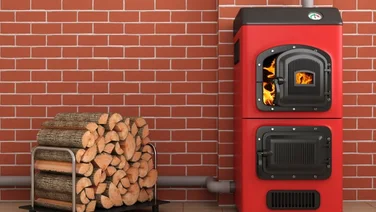We receive a small fee from trusted installers when you request a quote through our site. This helps us keep our content independent, well-researched and up to date – Learn more
✔ One in three new boilers will break down within their first six years of purchase
✔ You can invest in boiler cover from as little as £3.50 a month
✔ Fill in the short form above to receive free boiler quotes from our professional installers
There’s no denying it – getting a new boiler can cost a lot. Luckily, one way you can avoid the fear of having to splash out another few thousand pounds on your boiler is to get yourself boiler cover.
But what types of boiler cover are available? Who are the best providers? And what even is boiler cover? Read our guide below to find out everything you need to know about getting your boiler insured. Alternatively, you can fill in our short form, and our suppliers will be in touch shortly to provide you with a free quote.

What’s on this page?
Head straight to the section you need by clicking the links below:
- 01 | What is boiler cover?
- 02 | Do I need boiler cover?
- 03 | Types of boiler cover
- 04 | Things to know before getting boiler cover
- 05 | Comparison of best boiler cover
- 06 | How eco-friendly is each brand?
- 07 | What next?
What is boiler cover?
If you’re trying to get to grips with boiler cover, you may have already come across the endless list of names that companies like to use. Boiler cover, boiler care, boiler insurance, boiler service… whichever term you encounter, they all refer to the same thing.
But what is boiler cover? Well, it’s a type of insurance that can cover repairs that your boiler might need – and in some instances, it can even include the replacement of a boiler. This will all depend on the type of boiler cover you choose, but we’ll get to that later. Boiler cover can also ensure that other parts of your central heating system, and even plumbing and electrics, are maintained.
In other words, if you find yourself with an unexpected broken boiler – and a possible bill worth thousands of pounds – boiler cover can be something of a life-saver.
Read about the cost of a new boiler here for all the information you’ll need on what you might spend.
Do I need boiler cover?
Well, life does like to play its pesky little games with us sometimes, and dropping an unexpected surprise (like a broken boiler) is often how it likes to challenge us. In fact, research from Which? found that nearly one in three new boilers will break down within their first six years of purchase, with repair costs often running into triple figures.
So, to answer the question – no, it’s not a necessity to have boiler cover, but it is strongly advised (unless you enjoy cold showers).
As well as saving you having to fork out a few thousand if your boiler breaks down, boiler cover can benefit you and your household in a number of other ways:
• It can save energy (and money) – by having annual service checks as part of your boiler cover, this will keep your boiler running as efficiently as possible, keeping your energy bills to a minimum.
• It can avoid breakdowns before they actually happen – these annual checks will also catch any issues early on, keeping your boiler in tip-top condition.
• It prevents having to get a full replacement for your boiler – by keeping your boiler in good working order, you’re much less likely to need to replace it completely, which is much kinder on your purse strings.
Take a look at: How Long Does A Boiler Last?
Types of boiler cover
Boiler cover comes in all different shapes and sizes, and depending on which brand you go with, your package can include an array of wonderful benefits. Each company’s boiler cover packages vary, but there are three main types of boiler cover that you should know about:
• Basic boiler cover – does what it says on the tin, really. It typically covers your boiler, and provides the option for annual service/maintenance checks. If you’re lucky, the company will usually have a 24/7 call centre, so you can immediately arrange a call-out if your boiler breaks down.
• Boiler and central heating cover – this has all the benefits of basic boiler cover, with additional cover for radiators, pumps, and flue.
• Boiler central heating and wiring cover – again, this option has all the same features as basic boiler cover, with additional options to cover your plumbing and drains, electrical wiring, or both.
Things to know before getting boiler cover
Before you dive into researching different companies and prices, there are few things you should know about boiler cover:
• Check your home insurance first. Your home insurance may already have boiler cover included, so there’d be no need for you to worry about finding any additional cover.
• There are certain homes that might be unable to get boiler cover, such as mobile homes, bedsits, and commercial properties.
• You usually have to wait a few weeks before you can make a claim. This no-claims period was introduced to discourage people from getting their boiler covered once it is on the brink of a breakdown, after a breakdown has occurred, or once a fault has already been diagnosed. Depending on the company you go with, this timeframe can vary, but usually lasts between 14 – 30 days.
• Homeowners are the only people boiler cover is relevant to. If you’re renting your house, take a step back and let your landlord do the work.
• Good news! If your boiler is relatively new, it’s likely to be covered under the manufacturer’s warranty, so taking out additional insurance is unnecessary (for now).
• On the flip side, if your boiler is looking a bit old and decrepit, many insurers aren’t likely to cover it. In this case, it might work out better in the long-run to start saving up for a new boiler.
Comparison of best boiler cover
Feeling a little overwhelmed looking at all these different boiler cover options? There’s no need to worry – we’ve compiled a list of the different boiler cover brands, ranking them by cost, user experience, and how eco-friendly they are.
User experience
Before we sink our teeth into the nitty-gritty of what each company has to offer, see below how each service has been ranked on Trustpilot. This is a site that allows customers to give independent reviews on their experience:
Homeserve (Eon): ★★★★½
EDF: ★★★★½
Corgi: ★★★★½
British Gas: ★★★★
SSE: ★★★
Scottish Power: ★
nPower: ★
As you can see, Homeserve (EON), EDF, and Corgi are flying above the rest, boasting near-perfect scores. Meanwhile, Scottish Power and nPower have sunk to the bottom of the group, with an average review score of just one star.
Don’t want to judge a book by its cover? Okay, let’s delve a little deeper into the pros and cons of each company.
Pros and cons of boiler cover providers
British Gas
- Power is mostly from renewable energy
- 24/7 customer service
- One of the pricier options
- Poor value for money (according to customer reviews)
SSE
- Will work to repair any boiler, regardless of its age
- If your boiler is too old to be replaced, SSE will give you 10% off your new one
- However, to get a replacement boiler, it must be younger than 7 years old
- Cancellation fees can be up to £170
Homeserve (eON)
- Very good customer reviews
- Good responses to complaints
- Only 16.7% of their energy sources are renewable
- No 24/7 contact – support is available from Monday to Friday 8am-8pm and Saturday 8am-4pm
Scottish Power
- Will repair boilers ages up to 15 years old (if in good condition)
- Can contribute up to £750 for boiler replacement
- Poor customer service reviews. Rated 1 star on Trustpilot
- Only 15% renewable energy
nPower
- Wide variety of services
- Poor customer service reviews. Rated 1 star on Trustpilot
- Very limited information about boiler cover on their website
Corgi
- Excellent reviews on Trustpilot
- Reasonably priced (currently offering a 25% discount on boiler cover)
- If no claim has been made, the cancellation fee can be £30; if a claim has been made, the cancellation fee can be up to £120
EDF
- Reasonably priced boiler cover
- Excellent user reviews on Trustpilot
- If energy prices go down, the amount you pay will stay the same
- Only 11.7% of their energy is from renewable sources
Each company has its pros and cons – some of which are probably more important to you than others. For a lot of people, the cost of boiler cover is the deciding factor – after all, if nothing goes wrong with your boiler, you may not even need to use it.
Because of this, we have ranked some of the most popular energy suppliers in the UK, in terms of the cost of their boiler cover packages.
Monthly cost of boiler cover from the UK’s main energy suppliers
|
Rank |
Company |
Boiler cover cost (per month) |
Boiler and heater cover cost (per month) |
Boiler, heater, and electrics cover cost (per month) |
Excess |
|---|---|---|---|---|---|
| 1 | Scottish Power | £3.50 | £5.50 | £8.75* | £99 |
| 2 | SSE | £4.95 | £9.50 | £19.95 | £50-95 |
| 3 | EDF | £7.92 | £10.34 | £12.55 | £95 |
| 4 | Homeserve (eON) | £7.99 | £12.99 | £19.99 | £60 |
| 5 | Corgi | £9.75 | £12.99 | £13.50 | £60 |
| 6 | British Gas | £14 | £15.58 | £19.25 | £60 |
*for the first 6 months, then up to £17.50
How eco-friendly is each boiler brand?
If you’re anything like us, you might be wanting to know where your energy is coming from, and how it’s affecting your carbon footprint. Take a look below at how these different companies will affect your energy consumption:
If you were hoping to find something a little bit more green and eco-friendly, you’re not alone – but you’ll be glad to hear that the UK’s annual consumption of energy is gradually favouring renewable energy. According to the BBC, in the past decade, coal generation has plunged from 30% to 3%, while the energy created from wind power has shot up from 1% to 19%. There is hope!
This pattern has become a pivotal trend in UK energy throughout 2018 and 2019 – a hopeful sign of things to come.
What next?
Boiler cover can be a tricky business, but once you’ve sussed out the type of cover you’d like and the provider that best suits your needs, it’s plain sailing.
If you would like any further guidance on boilers, fill in our short form for a free quote, and our suppliers will be in touch to help you.
Just looking to polish up your knowledge on boilers before taking the leap? Check out our guide to the best boilers.








